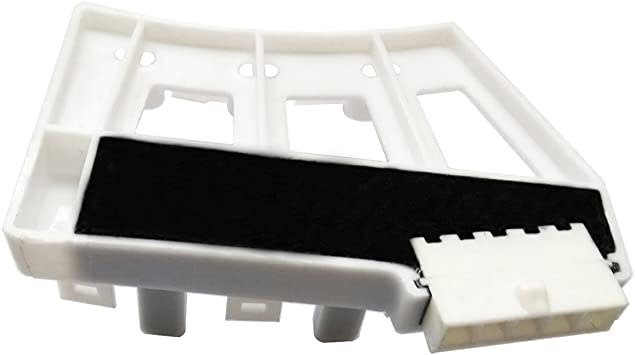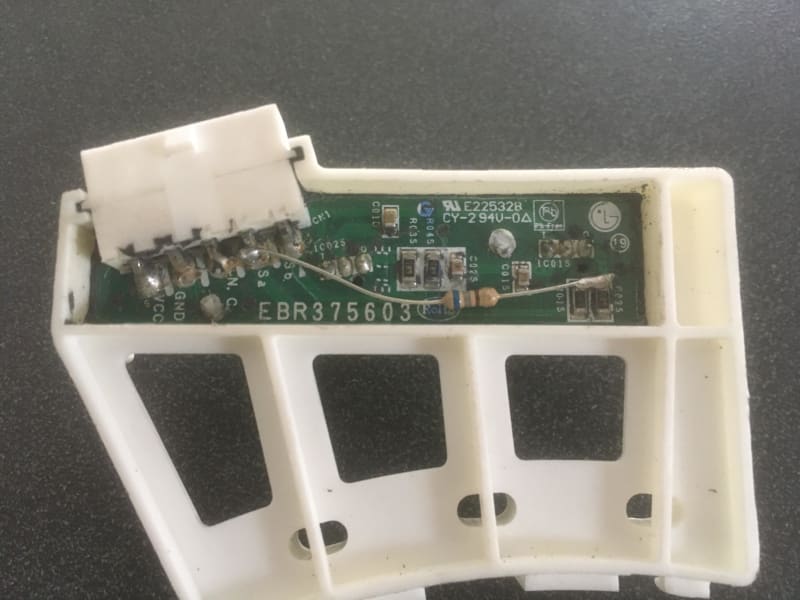I hang out in the structural forums, so forgive me with this probably simplistic question for you EE's.
Our washing machine (front loader - which I dislike, but do not really wish to replace at this time - it is only 6 years old) recently stopped working with a 'LE' code. I found the problem - broken Hall-effect sensor that I removed. Looked similar to this:

I removed the black rubber stuff to expose the PCB, and after testing, one of the SMD resistors (#681) has malfunctioned so I bypassed with new 680 Ω axial resistor. I re-checked the connection and all checked out to specs.
I reinstalled in the washer and all working ok. But this sensor is positioned near the motor stator on the back-side of the machine and if there was a leak through a bearing the sensor would get wet, so I want to replace the black rubber stuff.

Is 100% silicone sealant/caulking okay to use for this application?
Our washing machine (front loader - which I dislike, but do not really wish to replace at this time - it is only 6 years old) recently stopped working with a 'LE' code. I found the problem - broken Hall-effect sensor that I removed. Looked similar to this:

I removed the black rubber stuff to expose the PCB, and after testing, one of the SMD resistors (#681) has malfunctioned so I bypassed with new 680 Ω axial resistor. I re-checked the connection and all checked out to specs.
I reinstalled in the washer and all working ok. But this sensor is positioned near the motor stator on the back-side of the machine and if there was a leak through a bearing the sensor would get wet, so I want to replace the black rubber stuff.

Is 100% silicone sealant/caulking okay to use for this application?

